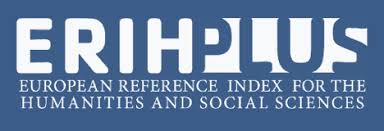№1, 2021
The problem of safety of children and adolescents on the Internet has been a hot topic in recent years. Children and adolescents often face dangers in cyberspace. This has a negative impact on their health, psychology and proper development as a citizen. The issue of taking preventive measures to ensure safety in the Internet environment, informing children, adolescents and young people about the threats in cyberspace are of the main issues in the information security of the government. In this regard, national security structures are established, researchers analyze the negative consequences of cyber threats, and the monitoring is conducted, forecasts are made, and serious legal documents, both national and international documents are adopted in different countries. The purpose of the study is to demonstrate the importance of establishing a National Safer Internet Center in Azerbaijan to address the issues of information safety, cybercrime and threats in cyberspace, and other similar issues. The study examines the activities of National Safer Internet Centers in a number of countries to ensure the cyber security of children, and analyzes the problems that arise in their operation. Comparative analysis and systematic methods are used in the study. The results obtained in the article are important for the establishment and effective operation of the National Safer Internet Center to protect children and adolescents from Internet threats in the virtual space in the e-government environment. (pp.138-149)
- MacFarlane K., Holmes V. Agent-Mediated Information Exchange: Child Safety Online / International Conference on Management and Service Science, 2009, pp. 1–5.
- Smahel D., Machackova H., Mascheroni G., Dedkova L., Staksrud E., Ólafsson K., Livingstone S., Hasebrink U. EU Kids Online 2020: Survey results from 19 countries. EU Kids Online, 2020, doi: 10.21953/lse.47fdeqj01ofo
- IWF 2019 Annual Report, https://www.iwf.org.uk
- Mahmudova R., Allahverdiyeva S. Elektron mühitdə gənc nəslin təhlükəsizliyinin təmin edilməsi problemləri// “Elektron dövlət quruculuğu problemləri” I Respublika elmi-praktiki konfransı, 4 dekabr, 2014, s.185-188.
- Əliquliyev R.M., İmamverdiyev Y.N., Yusifov F.F. Cəmiyyətin informasiya təhlükəsizliyinə dair bəzi konseptual baxışlar // İnformasiya cəmiyyəti problemləri, №2(4), 2011, 3-9.
- Safer İnternet Programmer, https://www.saferinternet.org
- A European Strategy to deliver a Better Internet for our Children, https://ec.europa.eu/digital-single-market/en/european-strategy-better-internet-children
- European Safer Internet Centre resources in response to COVID-19, https://www.betterinternetforkids.eu
- Safer internet day, https://www.betterinternetforkids.eu/web/portal/safer-internet-day
- Internet governance forum, https://www.betterinternetforkids.eu/web/portal/policy/internet-governance-forum
- General Data Protection Regulation, https://gdpr-info.eu
- Lievens, E., and Milkaité, I. Age of Consent in the GDPR: Updated Mapping of Recent National Guidance and Proposals. Better Internet for Kids, 2017, https://biblio.ugent.be/publication/8528973/file/8528974.pdf
- Better Internet for Kids, https://www.betterinternetforkids.eu
- United Kingdom Safer Internet Centre, https://www.betterinternetforkids.eu/web/united-kingdom/profile
- Kindergarten, https://www.saferinternet.at/zielgruppen/lehrende/kindergarten
- Romanian Safer Internet Centre, https://www.betterinternetforkids.eu/web/romania/profile
- German Safer Internet Centre, https://www.betterinternetforkids.eu/sic/germany
- Солдатова Г.У., Шляпников В.Н., Журина М.А.. Эволюция онлайнрисков: итоги пятилетней работы линии помощи «дети онлайн» // Консультативная психология и психотерапия, 2015, № 3, ст. 50-66.
- Əliquliyev R.M. İmamverdiyev Y.N., Mahmudov R.Ş. İnformasiya təhlükəsizliyi milli təhlükəsizliyin mühüm komponenti kimi // İnformasiya cəmiyyəti problemləri, 2020, №1, 3-25.
- Azərbaycan Respublikasında informasiya cəmiyyətinin inkişafına dair 2014-2020-ci illər üçün Milli Strategiya, https://president.az/articles/11312
- “Uşaqların zərərli informasiyadan qorunması haqqında” Azərbaycan Respublikasının qanunu” 30 oktyabr 2018-ci il, http://www.e-qanun.az/framework/40764
- Elektron Təhlükəsizlik Xidməti, https://cert.az/








.jpg)



